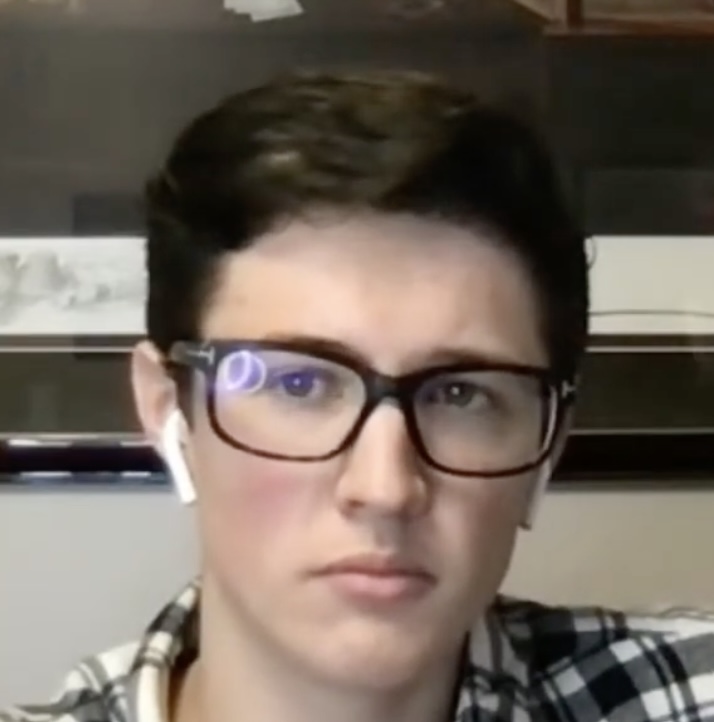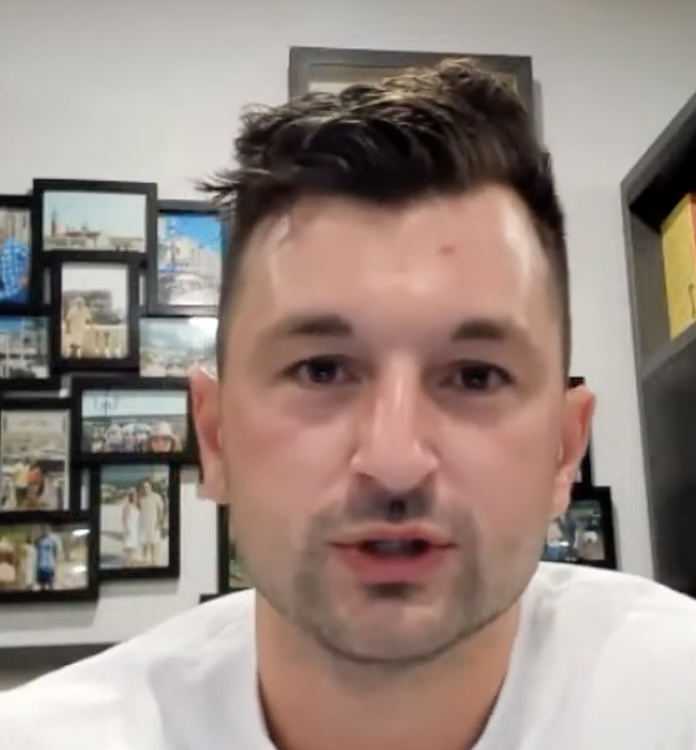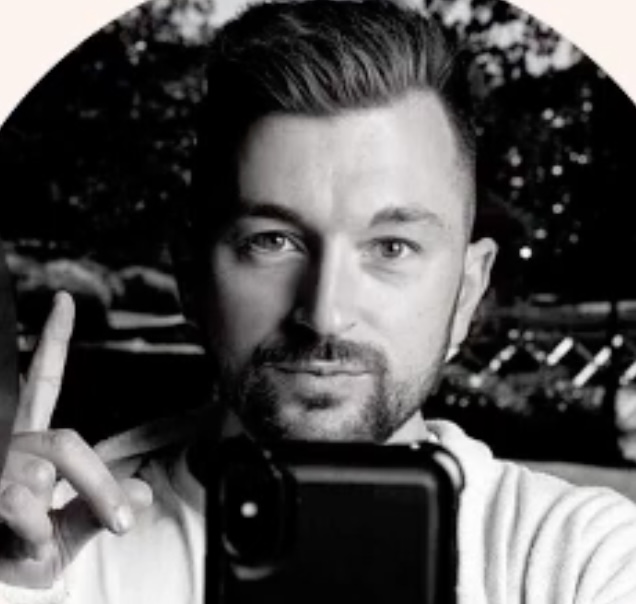A SIDE OF HIM YOU'VE NEVER SEEN BEFORE
He is not just a famous Influencer, but also an expert on mental health.
Learn more about how to recover from depression and the importance of mental health with his videos.
Depression and Covid-19


The pandemic was extremely hard.
There was somebody that you knew that was going through some difficult
time being trapped in your house.
A lack of social interaction really affects our mental state.
But I think your example is a very interesting point that’s relevant to mental men’s health.
I would imagine a male and for you being able to speak about your emotions and that’s something that the public is trying to get across that men are okay to express their emotions to the public.
What are your thoughts on that for men like myself that are a bit hesitant about keeping their thoughts trapped in their heads how does that work?
How do they cope with that?

Yes. it’s tough.
I’ll give you an example. Today, we did a video.
The sign said ’’this is my sign of depression and you are not alone.’’
So I just come out there straight instead of saying it’s pretty much
Zach’s depressed to like strangers and it’s scary that was the scariest one for
me personally because I never openly say that to that extent.
And people came up to me in groups and they would say how much they support that and what they’re struggling with like two guys or two girls or whatever their
orientation is.
I asked them ’’Do you guys have a support system, do
you guys talk to one another about this?’’
And oftentimes they’ve been friends for years and they say ’’No’’
And then they get really awkward I’m a blindfold on but I can feel the tension.
I’m just like you feel comfortable talking to a stranger about this yet in your groups there’s still that lack of normalization or stigmatization behind this conversation.
So my goal is to hopefully try to break that a little bit but the only way we can break that is through our own vulnerable confidence. And you don’t have to come out and say you’re suicidal or you haven’t made your bed in eight weeks you can just say I’m not feeling good.
I think just starting the conversation is everything and you’d be surprised at how well it’s reciprocated by the other person and that’s what I try to do and that’s
what I would suggest.
Depression rates in the U.S. have risen sharply in recent years and continue to rise, according to the National Institute of Mental Health (NIMH). The NIMH estimates that 16 million Americans are affected by depression, which is more than 6% of the population.
The rates are so high that doctors are having trouble keeping up with all of the patients who need help.
Depression is a serious mental illness that affects millions of people every year. It can affect anyone regardless of age or gender.
There are many signs and symptoms of depression including…
・Feeling sad or empty
・Having feelings of hopelessness or pessimism
・Loss of interest in activities you once enjoyed
・Trouble sleeping (insomnia) or sleeping too much (hypersomnia)
・Changes in appetite — either eating too much or too little
・Restlessness and agitation and slowed behaviour (psychomotor retardation)
・Fatigue and loss of energy nearly every day—even if you’re sleeping enough hours a night.
Mental Health Awareness


You have one and a half million followers on TikTok from your mental health videos.
You’ve been very open about how you have struggled with anxiety. And you like to share what’s really going on behind the surface.
So, what is anxiety like for you?
What’s it like dealing with it every day?
And how do you? How do you listen to it?

Yeah, so I learned through social media.
I created a formula called vulnerability equals relatability equals empowerment.
So I knew when I spoke from a vulnerable place that allowed people to feel hard when we talk about anxiety and mental health from a personal standpoint.
I felt isolated and lonely and no one else was having these similar thoughts of overthinking in the worst-case possible scenario happening.
So once I started putting out these daily anecdotes or examples and other people seeing that their social proof that they’re not alone.
Give them the confidence and then seek the support that they deserve. So yeah that’s kind of what I use social media for and what I go through on a daily basis is used to more so now.

You’ve also shared clips about things you should never cite someone suffering from depression or anxiety.
Could you please share a few of those with us?

Absolutely.
So I think when it comes to depression, the biggest thing you can do is non-judgmental listening, especially if you’re not a qualified healthcare practitioner, so not telling someone they’re dramatic or their attention, seeking or everybody has it bad.
It’s more sympathizing, empathizing, validating and listening to people really has an astounding effect.
We don’t know how many times someone’s tried to open up in the past.
They’ve had their door closed and the fact that they’re coming to you is everything so just listening is my biggest piece of advice.
Vulnerability, Relatability, Empowerement


Can you talk to me a little bit about your experience with anxiety and then we segue into your advice on that?

Yeah, so I think my anxiety to overthinking, go hand in hand about thinking about always what’s the worst-case scenario and never actually getting anything
tangible down on paper.
So I thought once when I started, like, I guess writing my thoughts down and seeing it as this, I guess, worst case scenario and recognizing, okay, it’s not that bad.
And it was there. it was like, okay, this is one, two and three.
These are the only three thoughts I have, but they go around 100 times in my head.
So not 300 thoughts, they’re just three.
And then I can take tangible actions towards them. Once I know the three things, the worst-case scenario, and then, okay. That’s the worst case, I’ll be okay
So that’s been something that was super helpful to me with anxiety.
And I think more so about recognizing that when I started talking to people that I’ve never talked to in my life about I struggle with certain things or just
the word struggle.
I never use that because it’s weak.
When I started saying I struggle, I started to recognize that I really wasn’t alone. Like on social media, I know there’s social proof that I’m not alone.
But in my real life, my friends who are in medical school,
and my friends back home open up more to my family.
I built a deeper relationship with them through that with my parents over the last year.
So think “finding an outlet that works for you” for me personally, it’s journaling and having the confidence to know that there’s some form of support system for you.
Whether it’s family, friends and someone you trust or professional support
to have that outlet to go to, know you’re not alone.
